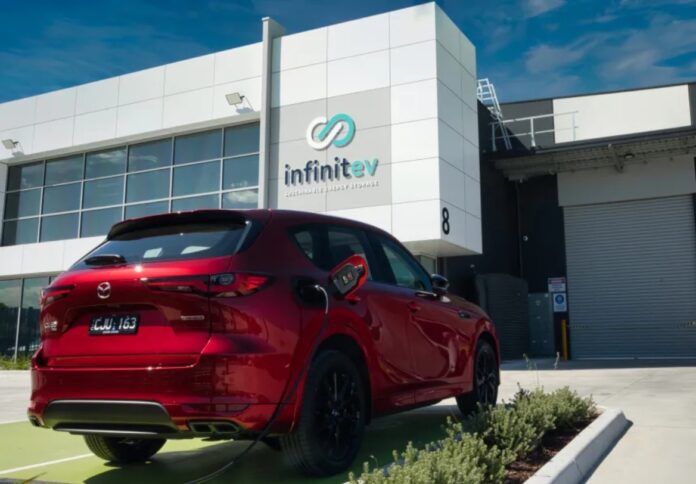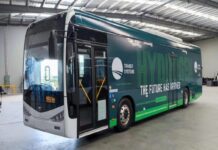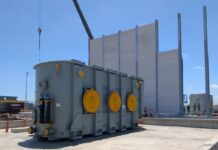
Mazda Australia and Infinitev have joined forces to pioneer a circular economy for EV batteries with a focus on delivering cutting-edge battery lifecycle management services that emphasise reuse, repurpose, and recycling solutions.
Infinitev, renowned for its leadership in the EV battery sector, aims to establish the world’s first fully circular economy for EV batteries, as announced in a news release.
The company’s innovative approach addresses environmental concerns associated with EV batteries, ensuring a sustainable transition that minimises waste and conserves valuable resources.
Dickson Leow, general manager of Infinitev, expressed his enthusiasm for the partnership, stating, “We are proud to have a holistic solution that addresses the environmental concerns associated with EV batteries.”
“Our innovative reuse approach ensures that the transition to a circular economy is not only sustainable but also reduces waste and preserves valuable resources. Through responsible battery management, we can accelerate the adoption of electric vehicles and build a greener Australia,” he explained.
Alastair Doak, Mazda Australia’s marketing director, underscored the importance of maintaining a sustainable approach to battery management as Mazda expands its lineup with electrified models.
He stated, “The holistic recycling process provided by Infinitev will be a key solution in giving valuable ‘second life’ opportunities to the batteries used in our vehicles.”
The collaboration marks a pivotal moment in the automotive industry as Australia rapidly moves towards an electrified future.
By creating a new recycling ecosystem, this partnership offers consumers sustainable options that significantly reduce the overall carbon footprint of EVs.
Leow explained the intensive multistage process, highlighting the SafetyCheck, a meticulous examination encompassing both physical and electrochemical safety assessments of EV batteries.
Infinitev’s skilled engineers then employ proprietary HealthCheck diagnostic tools to conduct thorough performance evaluations, categorising modules into three distinct grades – A, B, and C.
A grade modules are reused to build batteries for EV traction while B grade modules are repurposed for battery energy storage systems.
C grade modules are recycled by Infinitev’s partners to recover valuable materials.
With Australian demand for EVs forecasted to double by 2030, establishing a clean and sustainable process for batteries is crucial for the country’s economic and environmental future, Infinitev noted.



















